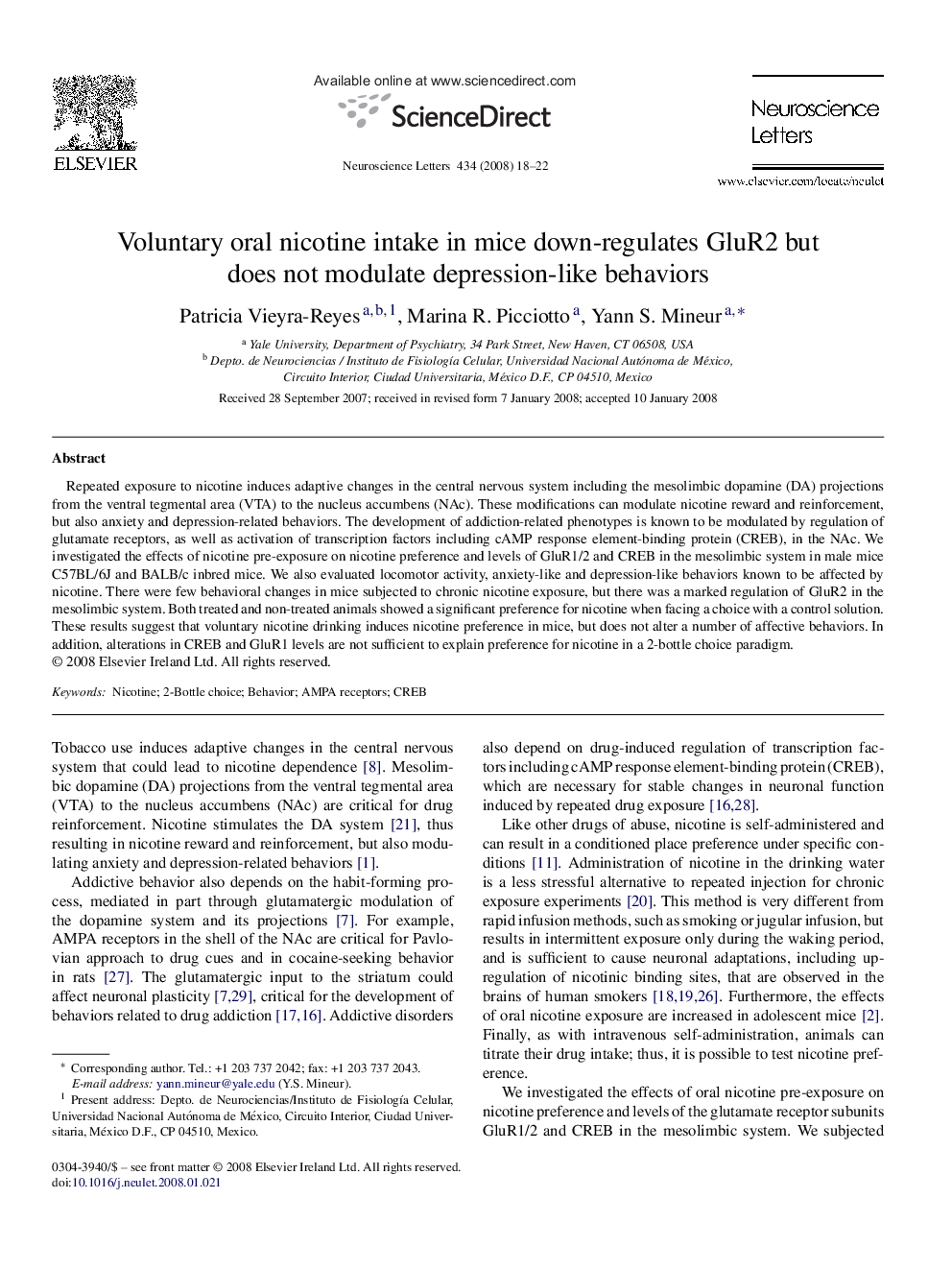| Article ID | Journal | Published Year | Pages | File Type |
|---|---|---|---|---|
| 4348650 | Neuroscience Letters | 2008 | 5 Pages |
Repeated exposure to nicotine induces adaptive changes in the central nervous system including the mesolimbic dopamine (DA) projections from the ventral tegmental area (VTA) to the nucleus accumbens (NAc). These modifications can modulate nicotine reward and reinforcement, but also anxiety and depression-related behaviors. The development of addiction-related phenotypes is known to be modulated by regulation of glutamate receptors, as well as activation of transcription factors including cAMP response element-binding protein (CREB), in the NAc. We investigated the effects of nicotine pre-exposure on nicotine preference and levels of GluR1/2 and CREB in the mesolimbic system in male mice C57BL/6J and BALB/c inbred mice. We also evaluated locomotor activity, anxiety-like and depression-like behaviors known to be affected by nicotine. There were few behavioral changes in mice subjected to chronic nicotine exposure, but there was a marked regulation of GluR2 in the mesolimbic system. Both treated and non-treated animals showed a significant preference for nicotine when facing a choice with a control solution. These results suggest that voluntary nicotine drinking induces nicotine preference in mice, but does not alter a number of affective behaviors. In addition, alterations in CREB and GluR1 levels are not sufficient to explain preference for nicotine in a 2-bottle choice paradigm.
